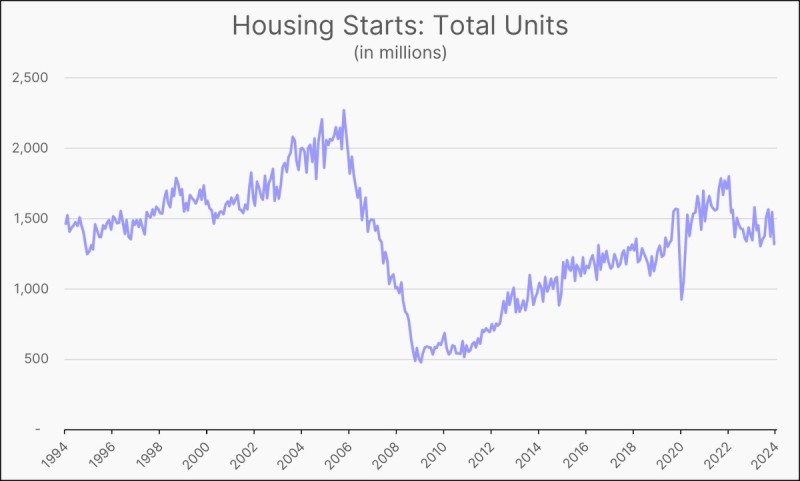Advertisement
Lock, stock and barrel

It seems that our government and business leaders are constantly making necessary changes to address the systemic blunders that were adopted during the last decade. We are witnessing an unprecedented bombardment of government intervention, regulation and supervision to re-engineer the overall finance industry. All of these complex changes are being enacted to ensure we never repeat the prescription for economic ruin again. Industry veterans, politicians and borrowers continue to struggle and place blame on numerous entities and individuals.
The “Blame Game” has become so popular, that it is now both a universal banking term, as well as the title of a recently published book chronicling our amazingly deficient oversight, accountability and responsibility in mortgage banking. We can only pray that all of the experts being called upon to contribute to the plan will enable our newly-elected government to create polices that stabilize home prices and stimulate economic growth in the near future. Logically, there is immense political disagreement about the plans being enacted, and uncertainty about their effectiveness and timing. The magnitude, complexities and scope of our problems are epic, and therefore, consumer confidence is at a historic low. One thing is certain: Our industry will never be the same, and we must restructure all aspects of the mortgage application process, credit standards, and secondary marketing practices to regain confidence, and eventually, more liquidity to the market.
So, what does all of the above history have to do with the title of this article, and why did I preface this article with a reminder of the problems we are sick and tired of hearing about? For those of you not familiar with the phrase, “Lock, Stock and Barrel,” simply put, it means to put complete focus into something. If you have your head down and are really visualizing your target, you can be said to be doing something “Lock, Stock and Barrel.” This phrase could not be more apropos of our market today. There are millions of people keeping their head down (for more reasons than I can list), and everyone is focusing on survival. Unfortunately, with so much attentiveness and tunnel vision about the big issues and restructuring the universe, we often overlook the simple obvious problems. With all of the expert analysis, intervention and regulations, we are missing one basic area of the secondary and mortgage application process that must be perfected. To date, the more intricate areas of secondary marketing that have remained front page negative news include securitizations, collateralized debt obligations (CDOs), derivatives, exotic adjustable-rate mortgages (ARMs), etc. Regrettably, one of the more basic areas that receive little to no attention is the lock process.
When a borrower applies to a mortgage company, they have the option to float their rate until a later period of time or secure the rate that is offered at application for a set number of days (rate lock). Applicants are able to secure hundreds of thousands of dollars of mortgage money by simply filling out an application, paying limited upfront expenses, such as an appraisal, credit report and/or application fee. This immediately creates some callousness about the mortgage application process, because the borrower has very little and/or no commitment to their loan, and/or their mortgage company. You might be asking yourself why a borrower should have to obligate themselves to a mortgage lender and/or their loans terms? With commitment comes responsibility, and with responsibility comes accountability. The last decade of mortgage company implosions is paved with examples of borrowers who did not understand the terms of their loans, as well as many unscrupulous mortgage companies that deceived borrowers into loans that were not in their best interests. We need to enhance transparency, accountability and responsibility, but how? Are there simple ideas that can achieve incredible results?
With all of the recent loan level price adjustments, borrowers have not been able to benefit enough from rate reductions. We also need to lower the cost of available credit. I have a simple solution. Create a national proscribed lock process, complimented by a suitable lock fee. The fatal flaw of not having this protocol in our industry has exacerbated our problems, increased rates and compounded mortgage company expenses.
By adopting a national lock fee policy, a borrower would take more stock reviewing the terms of their mortgage, and this would improve personal accountability. There are some purists who believe that if a borrower remembered the simple philosophy of “buyer beware,” that many of the bad mortgages would never have been done, and I partially agree. There are many of you who feel borrowers did not have a barrel of a gun pointed at their heads when they signed the mortgage, and should have been more responsible. Unfortunately, both assumptions have credibility. Over the past few decades, in an effort to ensure that borrowers had easy access to credit, they were given more and more freedom to shop their loan. While one would assume the ease of shopping could only benefit a borrower, our industry has made the process of shopping a loan so simple, that we diminished accountability and created a world where borrowers can shop mortgage companies indefinitely. This lack of commitment is especially true, if we examine a refinance commitment where the ability to rescind on a mortgage is voluntarily offered at time of application, to minimize the initial review of the paperwork involved. Simply stated, the flexibility offered to a borrower has had an adverse affect of minimizing the significance of a mortgage process, thus diminishing the predictability of loan closings post application. To be absolutely clear, I am not advocating the elimination of the borrower’s ability of comparing competitor’s terms and service. I am advocating that they have a substantial interest in the transaction when they select a company.
This policy would also enhance secondary market confidence and performance. It would reduce volatility of a mortgage company’s pull through percentage, for loans sold to the secondary market. Instability of pull-through creates additional hidden costs, directly related to hedging interest rate risk. By implementing a simple national lock fee, hedging volatility of pull-through would be dramatically reduced. Mortgage lenders are graded by their investors utilizing a scorecard. Large banks and/or correspondent investors rank correspondent clients by their ability to deliver high consistent pull-through. The mortgage lender is charged additional points or penalized for poor pull-through performance, and these costs are passed on to the borrower if their pull through does not meet expectations.
At a recent Lenders One (an alliance of more than 125 mortgage lenders) conference, I polled more than 30 executives about my concept, and they unanimously agreed that such a policy would be warmly welcomed. Many in the room had recently put differing lock fee policies into effect, and despite their employees’ passionate objections, they all witnessed very positive results. They also unanimously validated my assessment, that the secondary savings from a reduced pipeline volatility and operational waste that would be realized could range between 0.500 to 0.750 basis points. Simply put, the superior hedging performance achieved from the fee would directly benefit the borrower and the mortgage company.
A simple national rate lock policy would reduce the redundant expense that companies encounter working on loans that fall out of their pipeline. With the ease of losing a loan, it is difficult for a mortgage company to manage the efficiency and effectiveness of their originators. These unnecessary operational expenses eventually wind up being passed on to a borrower via increased rates.
In the mortgage world today, there is a widening gap between the small- to mid-sized companies. It is usually the larger companies that hedge, and the smaller ones that do not. Recent spreads between best efforts and mandatory delivery have expanded to historic highs. After speaking with several secondary risk management executives, they stated that there is an approximate 0.750 to 150 basis point differentials. Operating without a national rate lock policy, the best efforts lender struggles to manage the substantial loss of their applications in a declining rate environment. As rates drop, some smaller mortgage lenders feel helpless to maintain the customer, thus they often re-negotiate a rate lock with a borrower, re-lock the loan with a new investor, and do not deliver the loan to their original targeted investor. The larger lenders are not immune to the negative impact of existing loan lock policy and procedures. They incur the same losses and operational inefficiencies in their retail channels. Large lenders also are affected more severely via their third-party channels, that they have less direct control over when managing risk. These secondary and operational challenges have recently been cited as reasons for larger institutions eliminating their third-party channels. These third-party channels create liquidity and are another important aspect of our business slowly becoming extinct.
There is no other financial transaction that I could think of that has such a limited level of commitment. When you buy a stock, you don’t get to change the price of the stock later in the day because the market improved. In order to better manage risk, you have to be able to obtain a secure hold on your deliverables.
As I previously stated, there are lenders doing business that charge a lock in fee today, and unfortunately are at a competitive disadvantage by those that do not.. It is a proven fact that a realistic lock fee will differentiate real clients from rate shoppers. If we instituted a national rate lock fee policy, it would create more parity among competing lenders, stability in the hedging process, self-assurance that the borrower has an incentive to fully understand the terms, and operational efficiencies that can add to lender profitability. Paramount to all of the benefits outlined, an effective national rate lock policy would lower rates for borrowers.
The lock-in fee that should be implemented is an amount that does restrict borrowers from applying for a mortgage, and at the same time has a noticeable impact on the decision to commit to a particular lender. As exemplified above, I believe that a fee of 0.500 point would achieve the necessary impact. The policy should allow for the fee to be refunded at closing.
This type of change will not come easy. Companies that already instituted this policy fear that they will lose loan officers to competitors and borrowers will walk down the street to a company that does not charge them a fee. In this era of change, we must institute this one simple process, and do the right thing for borrowers, mortgage companies and the entire industry.
Michael L. Larssen, CMB has 20-plus years in the mortgage banking industry with senior management positions. He has started and/or managed numerous mortgage banking companies. He currently serves on several industry advisory councils, committees and boards. Larssen has held leadership positions with the Tennessee Mortgage Bankers Association and Lenders One Mortgage Cooperative. He previously served as chairman of the National Alliance of Independent Mortgage Bankers and holds the Certified Mortgage Bankers designation. He may be reached by phone at (727) 493-2218.
About the author





